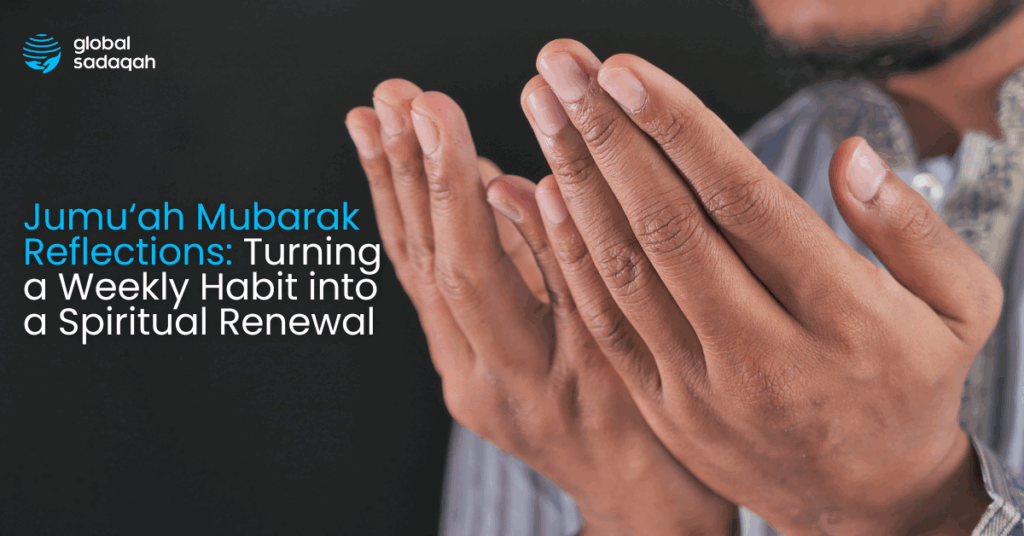For Muslims around the world, Friday is not just another day of the week. It is Yawm al-Jumu‘ah — the day of gathering, the day of blessings, the day that carries special significance in Islam. The Prophet Muhammad ﷺ described Friday as the best day on which the sun rises. It is a weekly reminder of faith, unity, and renewal.
But often, Jumu‘ah can become routine: attending the khutbah, praying in congregation, and then moving on with the rest of the day. To truly benefit, we must transform this weekly practice into a source of spiritual renewal.
The Unique Status of Jumu‘ah
Islam elevates Friday above all other days. The Prophet ﷺ said:
“The best day on which the sun has risen is Friday. On it, Adam was created; on it, he was admitted to Paradise; on it, he was expelled therefrom; and the Hour will not be established except on Friday.”
(Muslim)
This hadith shows how Jumu‘ah connects our lives to the grand story of humanity. It is a day that links the past, present, and future — from the creation of Adam to the Day of Judgment.
Jumu‘ah as a Weekly Eid
Scholars often call Friday the “Eid of the week”. Just like Eid al-Fitr or Eid al-Adha, it is a day of joy, cleanliness, and gathering. Muslims are encouraged to wear their best clothes, apply fragrance, and come together for the congregational prayer.
This weekly “Eid” reminds us that faith is not only about solemnity, but also about joy, beauty, and togetherness.
Acts of Renewal on Friday
Turning Jumu‘ah into a spiritual reset requires more than just attending the khutbah. The Sunnah of the Prophet ﷺ provides us with simple yet powerful practices:
1. Reciting Surah Al-Kahf
The Prophet ﷺ said:
“Whoever recites Surah Al-Kahf on Friday, it will illuminate him with light between the two Fridays.”
(Hakim, Bayhaqi)
This practice fills the heart with guidance and keeps us anchored between worldly challenges.
2. Sending Salawat Upon the Prophet ﷺ
Friday is a special day for sending blessings upon the Messenger of Allah ﷺ. Each salawat is returned with immense reward and brings us closer to him in the Hereafter.
3. Making Dua During the Special Hour
There is an hour on Friday when dua is not rejected. While scholars differ on the exact time, many hold it to be the last moments before Maghrib. This is a moment to pour our hearts out to Allah, seeking His mercy and guidance.
4. Giving in Charity
Acts of sadaqah are especially blessed on Fridays. Even a small act — feeding someone, donating a little, or offering kindness — carries multiplied rewards.
5. Attending Jumu‘ah Prayer with Preparation
The Prophet ﷺ encouraged bathing (ghusl), wearing clean clothes, and using perfume before attending the Friday prayer. This reflects the dignity and sacredness of the gathering.
Jumu‘ah as a Reset for the Heart
Just as the week wears us down with stress, work, and worldly concerns, Jumu‘ah gives us a chance to pause and recharge spiritually. The khutbah reminds us of timeless guidance, the prayer renews our connection with Allah, and the Sunnah practices realign our priorities.
If we approach Jumu‘ah consciously, it becomes a weekly checkpoint — asking ourselves: Where am I in my faith? Am I growing closer to Allah, or drifting away?
Reflection for Today
Many of us say “Jumu‘ah Mubarak” as a greeting to family and friends. But beyond the words, the real blessing is found in making the day meaningful. By turning Jumu‘ah into a weekly renewal, we transform it from habit into hope, from routine into revival.
Conclusion
Friday is not just the end of the work week; it is the crown of the week in Islam. It is a gift — a day of mercy, dua, and reflection. When observed with intention, Jumu‘ah can become a powerful reset button for our hearts and souls.
So, let every Jumu‘ah be more than a habit. Let it be a renewal of faith, a reminder of purpose, and a step closer to Allah’s mercy.

